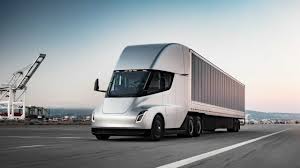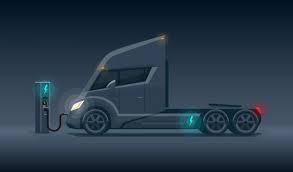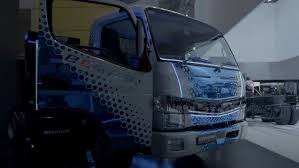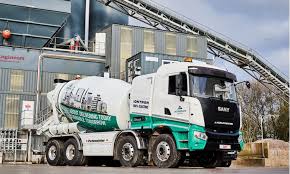ELETRIC TRUCKS AND COMMERCIAL VEHICLES
The transportation sector is undergoing a significant transformation, driven by advancements in technology, shifting consumer preferences, and growing environmental concerns. Among the most exciting developments is the emergence of electric trucks and commercial vehicles. This shift not only promises to reshape the logistics and transportation industries but also aims to reduce greenhouse gas emissions, lower operating costs, and enhance energy efficiency. In this exploration, we will examine the current landscape of electric trucks, their benefits and challenges, technological innovations, market trends, and the future of electric commercial vehicles.
The Current Landscape of Electric Trucks
Overview of Electric Trucks
Electric trucks are vehicles powered entirely or partially by electric energy, typically using batteries or fuel cells. These trucks can be categorized into several types:
- Battery Electric Trucks (BETs): These trucks rely solely on electric batteries for power, offering zero tailpipe emissions.
- Plug-in Hybrid Electric Trucks (PHEVs): These vehicles combine an internal combustion engine with an electric motor, allowing for shorter trips on electric power while maintaining the flexibility of a gasoline or diesel engine for longer journeys.
- Fuel Cell Electric Trucks (FCETs): Utilizing hydrogen fuel cells, these trucks produce electricity through a chemical reaction, emitting only water vapor.
Market Growth and Trends
The electric truck market has been gaining momentum in recent years. Several factors contribute to this growth:
- Regulatory Pressure: Governments worldwide are implementing stricter emissions regulations and incentivizing the transition to electric vehicles (EVs). Initiatives like California’s Advanced Clean Trucks regulation aim to increase the number of zero-emission trucks on the road.
- Consumer Demand: There is a growing demand for sustainable solutions in logistics and transportation. Companies are increasingly aware of the environmental impact of their operations and are seeking to reduce their carbon footprint.
- Technological Advancements: Improvements in battery technology, charging infrastructure, and electric drivetrains are making electric trucks more viable and appealing to businesses.
Benefits of Electric Trucks and Commercial Vehicles
- Environmental Impact
One of the most significant advantages of electric trucks is their potential to reduce greenhouse gas emissions. Traditional diesel trucks contribute significantly to air pollution and climate change. Electric trucks produce zero tailpipe emissions, which can lead to cleaner air and a smaller carbon footprint, particularly in urban areas where air quality is a major concern.
- Cost Savings
While the initial purchase price of electric trucks can be higher than that of conventional diesel vehicles, the long-term cost savings can be substantial:
- Lower Fuel Costs: Electricity is generally cheaper than diesel, and the cost of charging is often lower than fueling with traditional fuels.
- Reduced Maintenance Costs: Electric trucks have fewer moving parts than internal combustion engine (ICE) vehicles, leading to lower maintenance and repair costs. For instance, there are no oil changes, and brake wear is reduced due to regenerative braking systems.
- Enhanced Performance
Electric trucks can offer superior performance characteristics, including:
- Instant Torque: Electric motors provide instant torque, resulting in quicker acceleration and better overall performance.
- Quiet Operation: The operation of electric trucks is significantly quieter than traditional diesel trucks, which can reduce noise pollution, especially in urban environments.
- Improved Public Perception
Companies that adopt electric trucks may enhance their brand image by demonstrating a commitment to sustainability and environmental responsibility. This can lead to increased customer loyalty and a competitive edge in the marketplace.
Challenges Facing Electric Trucks
Despite their numerous advantages, electric trucks face several challenges that must be addressed for widespread adoption:
- Range Anxiety
One of the primary concerns among potential electric truck users is range anxiety—the fear that the vehicle will not have enough battery power to complete a trip. While advancements in battery technology are improving range, electric trucks still typically have a shorter range compared to traditional diesel trucks. This limitation can pose challenges for long-haul operations.
- Charging Infrastructure
The availability of charging infrastructure is crucial for the successful deployment of electric trucks. While urban areas are increasingly installing charging stations, rural and remote regions may lack adequate facilities. Companies may need to invest in their own charging solutions, which can be costly.
- Initial Cost
The upfront cost of electric trucks can be a barrier for some businesses. Although total cost of ownership may be lower in the long term, the high initial investment can deter fleet operators, particularly smaller companies.
- Battery Production and Disposal
The environmental impact of battery production and disposal is a concern. Lithium-ion batteries, commonly used in electric vehicles, require significant resources for production, and recycling these batteries is not yet widespread. Addressing these issues will be essential for making electric trucks more sustainable.
Technological Innovations in Electric Trucks
- Battery Technology
Advancements in battery technology are central to the success of electric trucks. Key developments include:
- Solid-State Batteries: These batteries promise higher energy density, faster charging times, and improved safety compared to traditional lithium-ion batteries.
- Battery Recycling: Innovations in battery recycling processes are crucial for minimizing waste and reducing the environmental impact of battery production.
- Autonomous Driving Technology
The integration of autonomous driving technology in electric trucks is a promising area of development. Automated systems can enhance safety, improve efficiency, and reduce labor costs. Several companies are actively testing and developing autonomous electric trucks for freight transport.
- Vehicle-to-Grid (V2G) Technology
V2G technology enables electric vehicles to discharge electricity back to the grid when needed. This capability can help stabilize the grid during peak demand periods and provide additional revenue streams for truck owners, making electric trucks even more economically attractive.
Market Trends and Key Players
- Major Manufacturers
Several key players are leading the charge in the electric truck market:
- Tesla: With its all-electric Semi truck, Tesla is positioning itself as a major competitor in the commercial vehicle space, offering impressive range and performance.
- Rivian: Known for its electric pickup trucks, Rivian is also developing commercial delivery vans in partnership with Amazon.
- Freightliner: A subsidiary of Daimler, Freightliner has introduced the eCascadia, an electric version of its popular Cascadia truck.
- Volvo: Volvo Trucks is actively developing electric trucks for various applications, including regional and urban distribution.
- Logistics Companies

Logistics and delivery companies are increasingly adopting electric trucks into their fleets. Companies like Amazon, UPS, and DHL are investing in electric delivery vans and trucks to reduce emissions and meet sustainability goals.
- Government Initiatives
Government incentives and regulations are driving the adoption of electric trucks. Many regions offer tax credits, grants, and subsidies for businesses that invest in electric vehicles. Additionally, some cities are implementing low-emission zones, encouraging the transition to cleaner transportation options.
The Future of Electric Trucks and Commercial Vehicles
The future of electric trucks looks promising, with several trends likely to shape the market:
- Expansion of Charging Infrastructure
As the demand for electric trucks increases, so too will the need for charging infrastructure. Governments, private companies, and utility providers are expected to invest in expanding charging networks, making it easier for fleet operators to recharge their vehicles.
- Enhanced Battery Technology
Continuous improvements in battery technology will likely lead to increased range, faster charging times, and reduced costs. This will make electric trucks more competitive with traditional diesel vehicles and facilitate their adoption for long-haul applications.
- Broader Adoption of Autonomous Vehicles
The integration of autonomous technology into electric trucks will revolutionize the logistics industry. Autonomous electric trucks can improve efficiency, reduce labor costs, and enhance safety, ultimately transforming how goods are transported.
- Emphasis on Sustainability
As environmental concerns grow, businesses will increasingly prioritize sustainability in their operations. Electric trucks will play a vital role in achieving corporate sustainability goals, and companies that adopt them will likely enhance their competitive advantage.
Conclusion
The rise of electric trucks and commercial vehicles signifies a major shift in the automotive and logistics industries. With the potential to reduce emissions, lower operating costs, and enhance performance, electric trucks are poised to transform how goods are transported. While challenges such as range anxiety, charging infrastructure, and initial costs remain, ongoing technological advancements and increasing demand for sustainable solutions are driving the transition toward electric commercial vehicles.
As we look to the future, the continued collaboration between manufacturers, governments, and businesses will be essential in overcoming barriers and realizing the full potential of electric trucks. The journey toward a cleaner, more efficient transportation system is underway, and electric trucks are leading the charge toward a more sustainable future.

